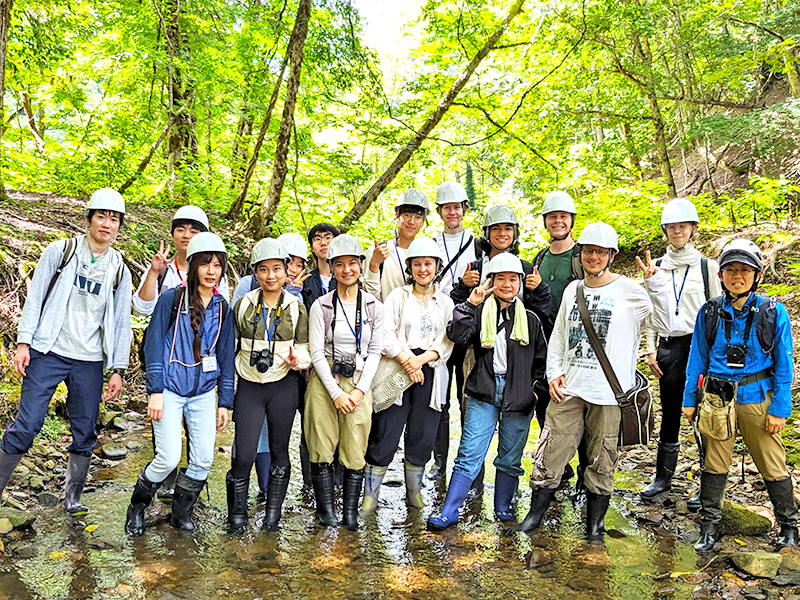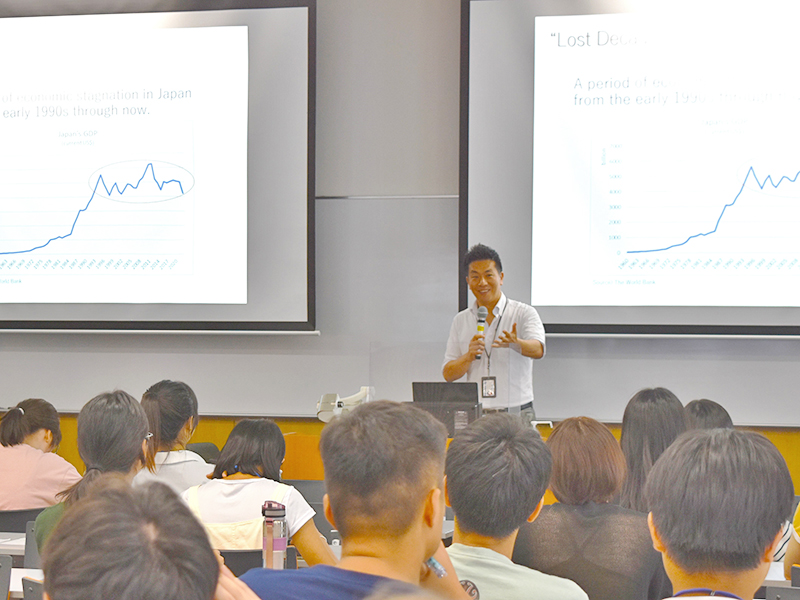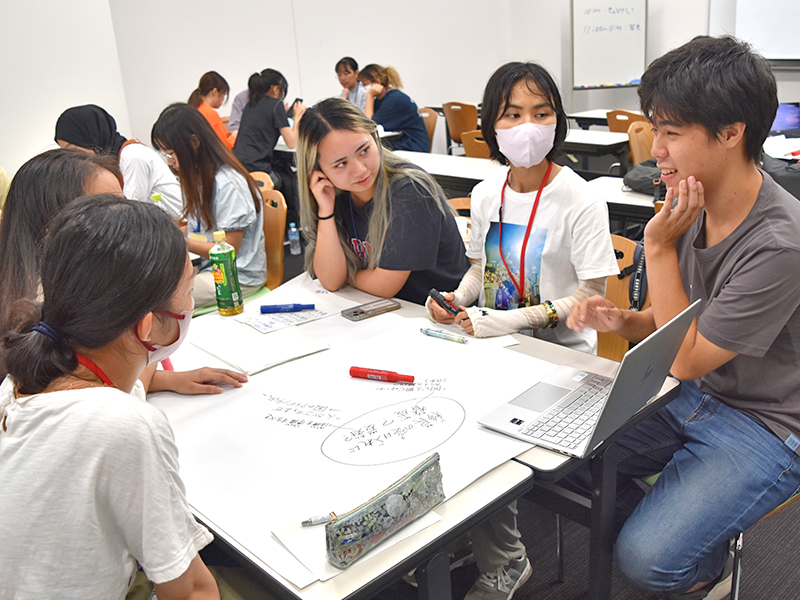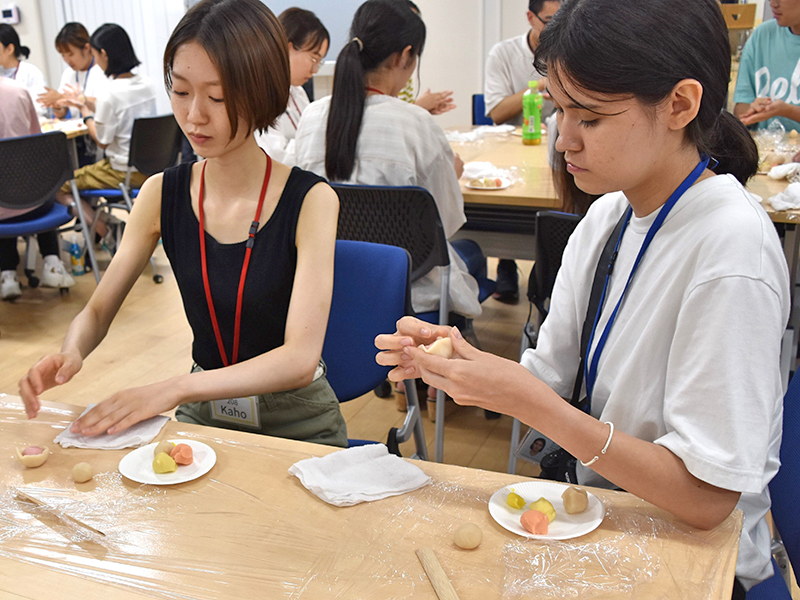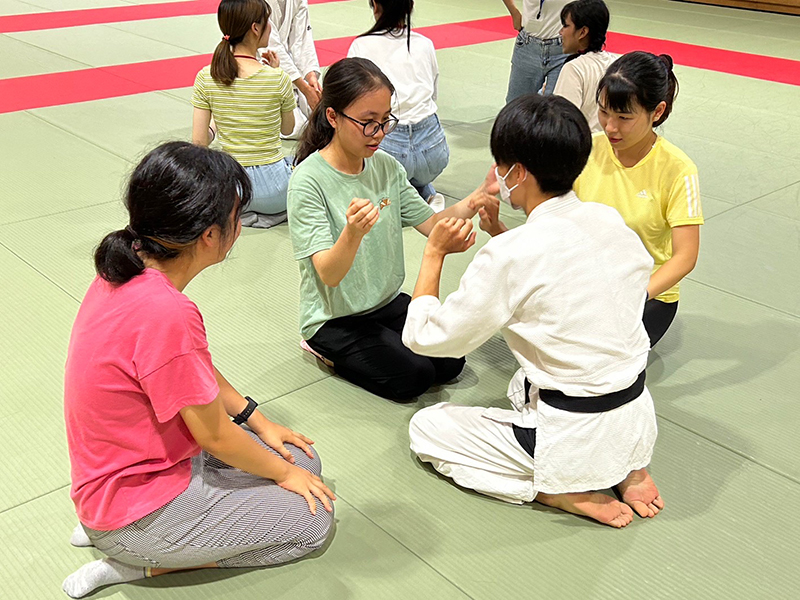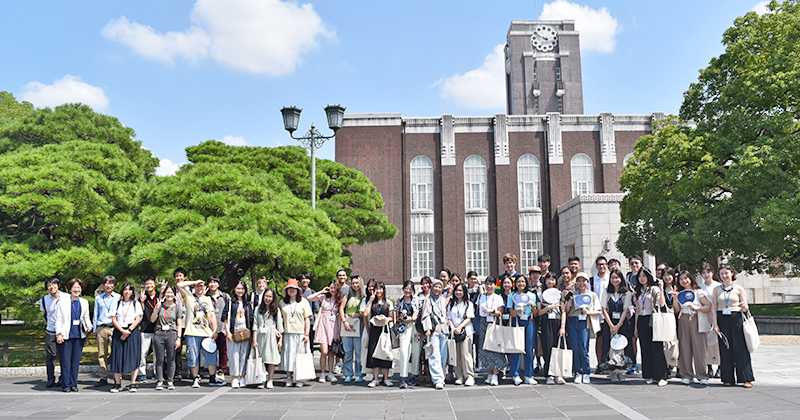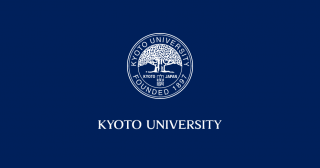Kyoto Summer Program 2023, comprised of two subprograms — one conducted by the Institute for Liberal Arts and Sciences (ILAS) and the other by the Kyoto University Asian Studies Unit (KUASU) — successfully took place from 28 July to 10 August with support from Kyoto University. Participating in the ILAS subprogram were 24 students selected from Peking University, the Chinese University of Hong Kong, National Taiwan University, Yonsei University, Heidelberg University, the University of Vienna, the University of California San Diego (UC San Diego), George Washington University, and Tufts University. The KUASU subprogram hosted 14 from Chulalongkorn University, the University of Indonesia, University of Languages and International Studies (a part of Vietnam National University), and UC San Diego.
The 2023 Kyoto program was the first in four years to be held in-person, with the previous few iterations having taken place online due to the pandemic. It was also the first to comprise a part of the University’s liberal arts and sciences course "Seminar for multicultural studies: Watch, listen and learn @ Kyoto – From accepting various cultures to transmitting your own", which resulted in 30 selected KyotoU students joining the international participants.
The Kyoto program enables students from abroad and KyotoU to take part in a wide variety of lectures and other activities together and experience the University's academic freedom and advanced research. Its curriculum is focused on developing a deeper understanding of Japan and the world in terms of politics, international relations, culture, tradition, history, society, and environmental and agricultural issues. The goal is to establish a solid foundation for the participating KyotoU students to pursue further international activities and for those taking part from abroad to develop enduring connections with the University and with Japan.
The 2023 curriculum featured 12 interdisciplinary academic lectures, five levels of Japanese language classes, a field trip, off-campus cultural experiences, and interactive discussions between the visiting and KyotoU students. The academic lectures included:
- "Science and Technology in the Age of Gases: Is it Possible to Live on 'Haze (Water Vapor and Air)'?" by Dr Susumu Kitagawa, distinguished professor and deputy director-general of Kyoto University Institute for Advanced Study (KUIAS)
- "The unique features of Japanese feminist movements: Placing Japan in the multilayered diversity of global gender history" by Dr Emiko Ochiai, professor at Kyoto Sangyo University and founding director of KUASU
- "Exploring the Fascinating World of Bonobos: Unveiling the Secrets of Their Unique Matriarchal Society" by Dr Nahoko Tokuyama, assistant professor at the Wildlife Research Center (WRC)
- "Political Economy of Japan's 'Lost Decades'" by Dr Takashi Sekiyama, associate professor at the Graduate School of Advanced Integrated Studies in Human Survivability (GSAIS)
- "Why do we pay special attention on disasters?" by Dr Hirokazu Tatano, professor at the Disaster Prevention Research Institute (DPRI)
The field trip, held with the cooperation of the KyotoU Field Science Education and Research Center (FSERC), provided engaging hands-on learning experiences at the Ashiu Research Forest and delved into topics such as ecosystem conservation, Japan's forestry industry, and issues related to animal damage.
Cultural experiences included a visit to the Seifuso Villa, an important cultural property owned by Kyoto University, as well as opportunities to learn firsthand about various aspects of Japanese culture, including kimono, wagashi (traditional sweets), shopping arcades, and university clubs.
There were also a 'KU Intro' time, which highlighted the University's history and characteristics, and 'Laboratory/Graduate School Visits', conducted with the cooperation of the Graduate School of Letters, the Graduate School of Human and Environmental Studies, and the Institute for Integrated Cell-Material Sciences (iCeMS).
The two-week program concluded with a completion ceremony, held following final presentations by all the participants.
ILAS and KUASU aim to continue and expand their collaborative learning programs for years to come with the goal of fostering intercultural exchange and mutual understanding among prospective global leaders.
